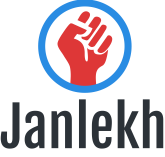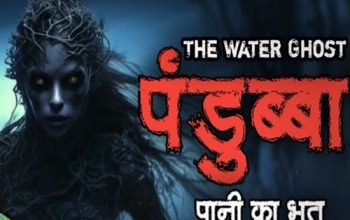By Khushbu Khan
India’s diversity is one of its greatest strengths, with different cultures, religions and languages contributing to the richness of its society. However, achieving unity and social harmony in such a diverse society can be challenging. The recent tweet by the Organisation of Islamic Cooperation (QIC) General Secretariat, denouncing alleged mounting Islamophobia in India, following the localised violence that took place during the Ram Navami procession on March 31, has raised questions about the country’s commitment to its fundamental principle of promoting peace and tolerance among its people. The allegations by QIC can be analysed from three perspectives: Action by law enforcement agencies post violence, scale and nature of the violence and whether Muslims in India are empowered enough to voice their grievances.
Taking prompt action post Ram Navami procession violence in Nalanda district of Bihar, 15 FIRs have been registered in various police stations and 130 arrests have been made so far (Source: Indian Express). The arrests were made on the basis of the involvement in violence rather than on the basis of religious affiliations, as mentioned by those trying to push a particular narrative. A 16-year-old Hindu boy died in cross firing in Biharsharif, while two Muslim men were injured, clearly showing that people from both the communities were affected in the violence. Those trying to project Muslim victimhood or Islamophobia purposely chose to omit the fact that deceased in the violence was a Hindu. In Vadodara, Gujarat, the Detection of Crime Branch (DCB) have arrested 40 persons from both communities for various incidents of violence. Police had registered an FIR against Kajal Hindustani or Kajal Shingala for her alleged hate speech and detained more than 50 people on the charge of rioting, following a communal clash at Una town in Gujarat’s Gtr Somnath district that left two persons injured. These FIRs have been lodged in Gujarat, which is often painted as anti-Muslim by foreign organisations.
Police have registered an FIR against nearly 300 persons and arrested 21 so far in connection with a clash between two groups during a Ram Navami procession in Mumbai’s Malvani area. Those arrested belonged to both the communities. Similarly, police arrested over 20 persons from both the communities in connection with a clash that broke out between Hindus and Muslims on the occasion of Ram Navami in Mumbai’s Malad area. The Home Ministry on Tuesday (April 4) has sought a report from the West Bengal government related to action taken by the government post Ram Navami violence. Apart from these, the Central Government has shown utmost urgency in dispatching paramilitary forces to all the violence affected states to augment the State Police forces including those in non-BJP ruled states (contrary to narrative put forward by foreign organisations like QIC). All these prompt actions shows that rule of law is supreme in India and allegations of lawlessness and Muslim lives in danger appear to be a concocted narrative.
Talking about the second aspect, India is home to the third largest Muslim population in the world. The holy month of Ramadan is going on and millions of pious Muslims are happily observing their fast and prayers including the special Taraweeh prayers. Instances of temples offering Iftar or Muslims offering Iftar kits outside temples keep propping on digital media intermittently. Apart from a handful of communal clashes reported from 4-5 states in India, nothing adverse was reported from the country. Foreign organisations with vested interest, never highlight the peaceful atmosphere being enjoyed by majority of Indian Muslims, but specifically chose to highlight sporadic incidences of violence to promote a particular narrative against India.
Looking at the third aspect, India is a democratic country which has always given space for dissent. Whenever a threat to the rights enjoyed was perceived. Muslims have always come out in large numbers to voice their grievances. Be it the anti-CAA protests or protests related to Triple Talaq, various protests were organised by Muslim organisations throughout the country. This shows that Muslims of India are empowered enough to voice their grievances, if any, and does not need the interference of foreign based agencies/ organisations. Coming back to the QIC’s allegation, it is pertinent to mention that Pakistan is a member of QIC and the latter had taken multiple anti-India stance in the past, including issuing statements in support of jailed Kashmiri separatist leader Yasin Malik, asserting the rights of Pakistan on PoK and supporting independence of Kashmir.
India is a democratic nation that respects the rights of its citizens, including the freedom to practice their religion and cultural heritage. QIC consists of 57 member countries. There are numerous instances of human rights violations including instances of communal violence in the member countries of which atrocities on Baloch Muslims and Hindu Minority by Pakistani establishment is a glaring example. The impartiality of QIC becomes questionable on its silence on the atrocities committed by its member States while being vocal about few localised incidences of violence in India which is often dealt with firmly. The timing of QIC’s statement also comes under cloud given the fact that elections are approaching in many Indian States in which statements like these may have polarising effect. Muslims in India are enjoying equal rights in comparison to their Hindu counterparts and even if there is any lapse, they are empowered enough to voice their grievances without any external support.
(The views expressed in the article are personal to the author. It has nothing to do with janlekh.com management.)




